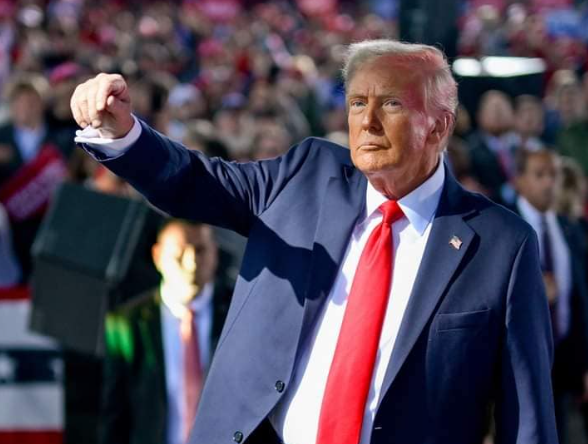World faces economic uncertainty as Trump returns
By Onyango KOnyango, December 31, 2024As the world enters 2025, global leaders and policymakers are bracing for a year of significant political and economic challenges, especially with Donald Trump returning as president of the United States on January 20.
After a tumultuous first term, his re-election signals potential disruption on the international stage, particularly regarding his confrontational approach towards global powers like China, Mexico, and the European Union. The world’s already fragile stability, exacerbated by the lingering effects of the Covid-19 pandemic, the Russia-Ukraine war, Middle Eastern conflicts, and climate change, points to an uncertain future. For developing countries, especially in Africa, these tensions will likely worsen the economic struggles they have faced for years.
Trump’s foreign policy, which has leaned heavily toward nationalism and protectionism, could further destabilize global markets. His previous term saw the initiation of a trade war with China, including the imposition of tariffs. With his return to power, these trade conflicts are likely to reignite. Trump has already indicated plans to impose 10-20 percent tariffs on all Chinese imports, which could destabilize the global economy and heighten the uncertainty facing international markets.
The economic repercussions of a renewed trade war between the US and China would be severe. Both nations might devalue their currencies to gain a trade advantage, which, while benefiting them in the short term, would harm developing nations, particularly in Africa.
Weaker currencies would lead to inflation, reduced purchasing power, and a rise in external debt, crippling many developing countries’ economic recovery. Additionally, China’s role as the largest global consumer of oil means any downturn in its economy would reduce demand and cause global oil prices to fall. While oil-importing nations might benefit short-term from lower prices, oil-exporting economies, particularly in Africa and the Middle East, would be hit hard. The ripple effects would create volatility in global markets, further discouraging investment and leading to capital flight from developing economies.
Trump’s protectionist stance, prioritizing national interests over global cooperation, contradicts the growing global consensus that multilateralism is key to tackling today’s challenges. Issues such as climate change, the Covid-19 pandemic, and geopolitical conflicts require international collaboration, yet Trump’s rhetoric often favours unilateral actions that isolate the US from its allies.
For example, his threat to take control of the Panama Canal, following Panama’s dealings with China, represents a unilateral move that could destabilise international relations. The canal, once under US control and handed to Panama in 1999, has long symbolised American influence in the region. Such provocations risk antagonising Panama and other nations in Latin America and could exacerbate global tensions.
The need for multilateralism — cooperation among multiple nations for mutual benefit — is more pressing than ever. The world cannot afford isolationism in the face of crises such as the Russia-Ukraine war or climate change. Global institutions like the United Nations and the World Trade Organisation are essential for guiding collective action. However, if the US continues adopting protectionist policies under Trump, these efforts may be undermined, slowing progress on global issues and exacerbating existing tensions.
In an interconnected world, disruptions in the major economies have far-reaching consequences. A US-China trade war, currency devaluations, and geopolitical tensions between these superpowers would severely affect developing nations in Africa, Latin America, and parts of Asia. Many of these countries depend on exports, foreign investment, and international aid, and their economies could destabilise further as a result of these larger geopolitical struggles.
— The writer is a Journalist and Communication Consultant
More Articles

